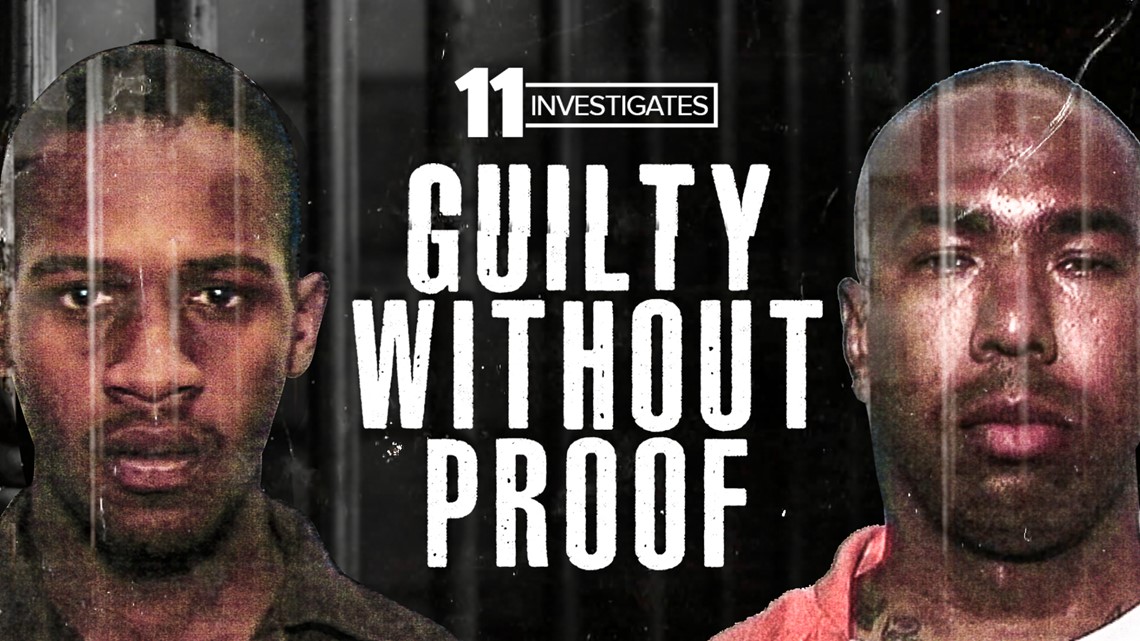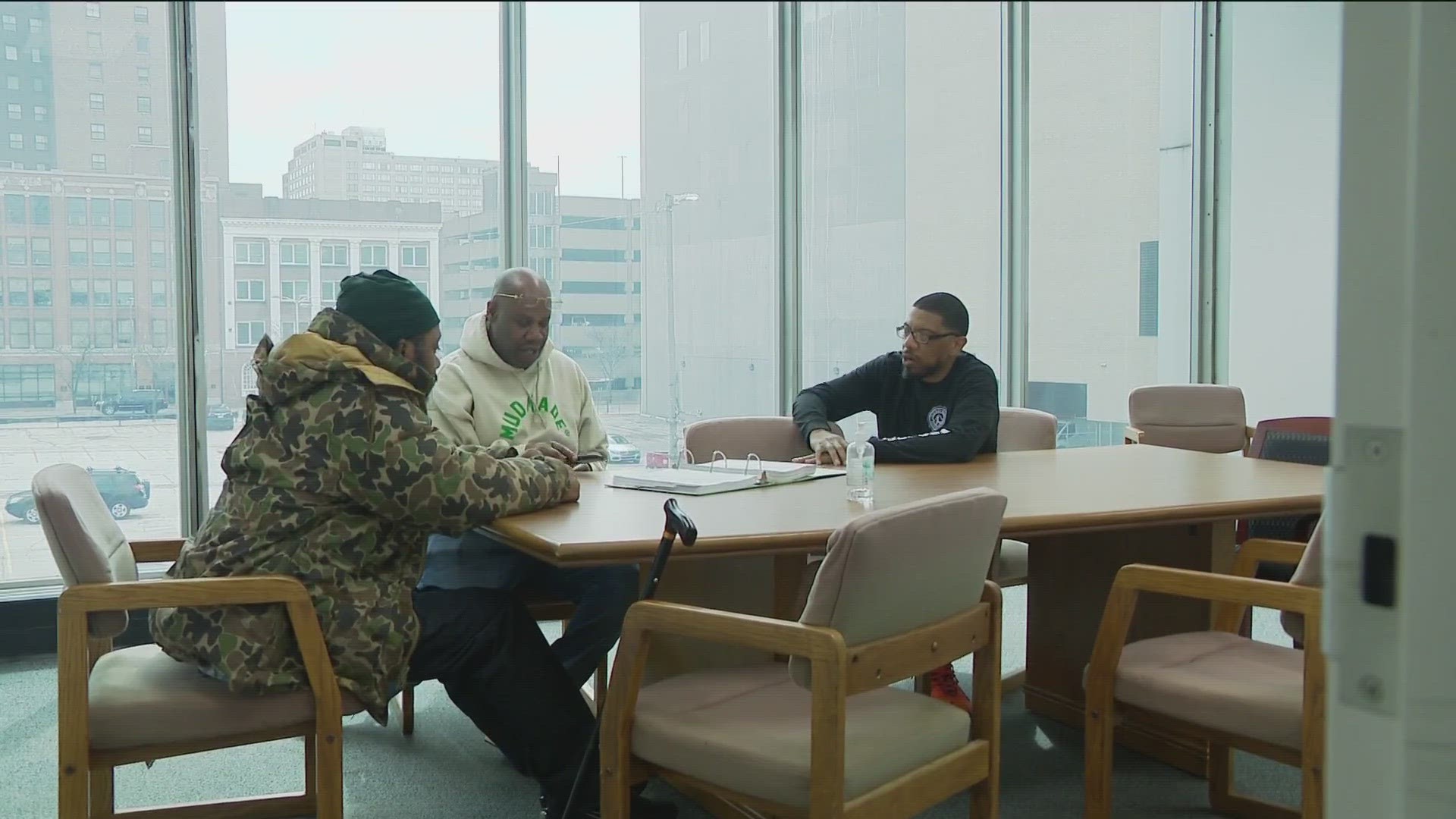TOLEDO, Ohio — On Tuesday afternoon, Lucas County Common Pleas Court Judge Gary Cook granted Wayne Braddy and Karl Willis judicial release. But one of the requirements for the men, who spent more than 23 years in prison, is that they receive mentoring from Willie Knighten and other members of his Above & Beyond Care behavioral health program.
There is no one, perhaps, who is in a better position to help the men reintegrate into society. Since being convicted in 2000 of killing a young teen, they have proclaimed their innocence. Their story was featured in WTOL's 2019 investigation, "Guilty without Proof."
Knighten was released in 2009 after serving 13 years for a murder he did not commit. Judge William Skow wrote the Ohio Parole Board and told them he wrongfully convicted Knighten. Then-Gov. Ted Strickland granted him clemency. Gov. Mike DeWine recently pardoned him.
Knighten has worked with hundreds of inmates returning to society. He helps them get a drivers license, Social Security information, housing, transportation, a job, and, maybe most importantly, with anxiety or emotional issues developed behind bars. He has known Braddy and Willis for most of their lives.
“They’re going to be OK as long they want it, as long as they keep their mindset right," Knighten said. "The most important thing is that mindset. Don’t allow the bitterness to set in now that you’re free. Now you’ve got to put it behind you and move forward.”
Reintegration is a major issue for those leaving prison. According to the latest federal statistics, nearly 50 percent of released offenders returned within five years.
Braddy and Willis were to report to Knighten on Wednesday.
“They will find housing. They will obtain their driver’s license. They will have bank accounts," Knighten said. "They are going to be reacclimated.”
The men's family is also trying to help them establish a little financial security. They have started a "Help Wayne and Karl transition to freedom" GoFundMe account, with all the proceeds going to the men.
What is obvious is that the world has changed a lot since Braddy and Willis were incarcerated in 1999. On Tuesday night at a celebration with family and friends, hours after being released, Braddy was excitedly texting and scrolling through the Internet on a new phone he was given by family.
It will take them time to adjust to being in public and to the latest technology.


Across the room, Knighten was entertaining his table with stories, but he was the one facing the door. He never sits with his back to the entrance of a room. And basic technology is still overwhelming more than a decade after being released.
"Simple things like going into a shop and seeing those doors swing open on their own and stuff like that is strange," Knighten said. "Driving is still weird, particularly all those roundabouts.”
His partner at ABC, Charles King, understands. He was at Lebanon Correctional when Braddy and Willis were processed into the system. He was released in 2011 after being locked up for 13 years for aggravated robbery. He won't use an elevator, doesn't liked to be "locked in" a plane, and was flabbergasted by some of the advances that came about when he in prison.
“I’m sitting at my mom and dad’s drinking coffee, soaking life in," King said. "I see the garbage truck go by, and I said, 'wow, a garbage truck. Then I saw this mechanical arm come out of the side of it, and it blew my mind.”
He agreed with Knighten that staying out of trouble is a mindset, knowing that you don't want to go back to prison. After his release, he went to college and received a bachelor's degree in film from the University of Toledo. He is working on a screenplay.
There is also more discipline required once a person leaves prison, he said. In prison, someone is always around to tell you where to go, what to do, and when meals are to be eaten.
"Out here, you could end up living under a bridge," King said. "But living under a bridge is still better than being locked up."
His advice to Braddy and Willis is to take it slow. Don't jump in and try to do or learn everything at once. It's advice he could have used back in 2011.
“My cousin, who lives in Columbus, gave me a phone, a really nice phone, and put me on his plan. I could text, use the Internet, do whatever I wanted to do," King said. "I had the phone for like two days and then I get a call from him. I say, 'hey, what’s going on?' He says, 'listen, it’s not your fault, you didn’t know, but you used up the data for me and my wife and you for the entire month - in two days.'”
For Braddy and Willis, their education about this radically different world begins this week.

